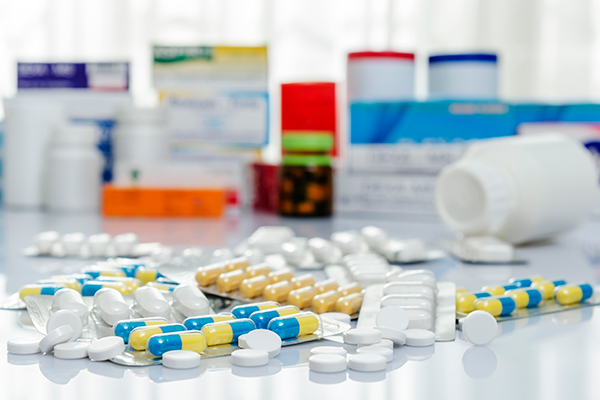The International Association of Chiefs of Police breaks drugs into seven distinct classifications – both illegal and otherwise. Different chemical substances affect people in different ways. For example, some drugs cause auditory and visual hallucinations; some drugs cause intense drowsiness; some drugs make people more alert, focused, and energized. The DRE (Drug Recognition Experts) classifications are based on how different drugs make people feel and behave. 
Evoke Wellness and Drug Addiction Recovery Process
It is important to understand that even if a drug is not illegal, like cocaine, heroin, or methamphetamine, it can still be addictive. People can become psychologically addicted to any chemical substance, especially if they struggle with an underlying issue like a mental health disorder or unresolved trauma.
More About Drug Addiction Recovery at Evoke Wellness
If you have been struggling with a drug addiction of any kind, Evoke Wellness is available to help. Our drug addiction recovery program was carefully designed by a team of highly experienced industry professionals who consistently hold themselves to the highest set of clinical standards. As a result, our addiction recovery program is both licensed and accredited, and innumerable men and women have gone through our program and maintained sobriety for years to come. We know how devastating drug addiction can be. However, we also know that recovery can be achieved if you are dedicated to continuing with your recovery program and consistently doing what you need to do. Contact us today to learn more about our recovery program or get started on the journey of drug addiction recovery.
The Seven Main Drug Classifications
Any one of these substances can be dangerous and habit-forming. However, recovery is possible regardless of which substance you are abusing. Simply contact us to learn more about our recovery program or to learn how you can overcome addiction and go on to live the happy and fulfilling life you deserve. The seven main drug classifications are as follows:
- Central nervous system depressants – CNS depressants are most commonly used for the treatment of anxiety disorders and sleep disorders. Some examples of CNS depressants are medications like Valium, Xanax, Klonopin, and Librium.
- Central nervous system stimulants – CNS stimulants are most commonly prescribed for the treatment of attention deficit-hyperactivity disorder. Examples include medications like Adderall and Ritalin.
- Hallucinogens/psychedelic drugs – This type of drug is most commonly used for recreational purposes, though most hallucinogenic drugs are illegal. Some examples of this type of chemical substance include LSD, MDMA, and psilocybin mushrooms.
- Dissociative anesthetics – These drugs work by cutting off pain signals before they reach the brain. PCP is the most commonly abused dissociative anesthetics.
- Narcotic analgesics – This type of drug relieves pain while inducing feelings of pleasure or euphoria. Some commonly abused narcotic analgesics include heroin, morphine, methadone, and codeine.
- Inhalants – This type of drug is typically legal to purchase, but it is still considered a controlled substance. Many adolescents and young adults abuse this type of drug because it is so readily accessible. However, inhalants are highly addictive and can cause permanent brain damage.
- Cannabis/marijuana – Marijuana is in a class all of its own. This substance is gaining legality in many states. However, contrary to popular belief, marijuana can be habit-forming. Marijuana use disorder is a very real disorder, and it can cause a range of serious issues for those grappling with it.
Find Sobriety and Overcome Drug Abuse With Our Support!
Addiction recovery is not as easy as committing to change. It is not as easy as reading a self-help book or calling a hotline. Addiction recovery takes time and energy. However, if you have the willingness and motivation to recover, you are capable of doing much more than you might think while you’re in the throes of active addiction. All you need to do is contact us, and we will take care of the rest. We look forward to helping you begin your journey of drug addiction recovery.


